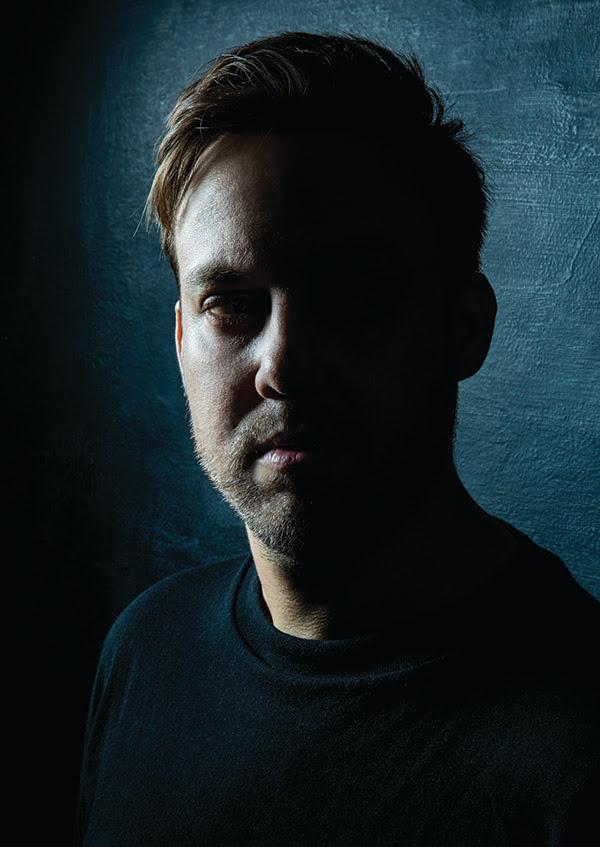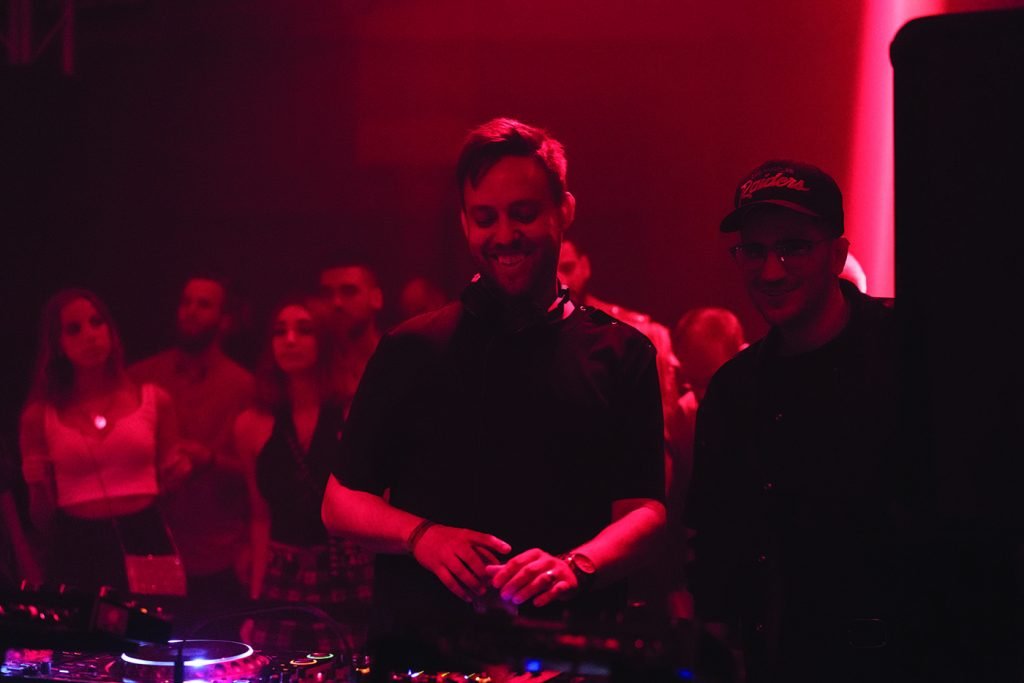Maceo Plex talks electro, EDM and going back to his roots as Mariel Ito
Click here to view original content at djmag.com
When Eric Estornel, now best known as techno titan Maceo Plex, was just three- years-old, things in his native Miami started to change. From April to October 1980 more than 100,000 Cubans reached Florida by sea, often in dangerously overcrowded boats, where they sought exile from Fidel Castro’s rule. The Cubans traveled from Mariel Harbor, 25 miles west of Havana, in what became known as the Mariel boatlift, an event that marked a milestone in Cuban- American history.
“My parents are very much first- generation Cubans that came over after Fidel Castro came in,” Estornel explains, 38 years later, of an event that would prove important for his musical career. “When the Mariel boatlift happened, it was another wave of Cubans coming in. A different kind of Cuban. They had been living in communism for a long time, there were a lot of criminals mixed in. There was a huge crime wave. And so the old-school Cubans would talk bad about those Cubans that came. And so we were ‘Marielitos’ if we misbehaved.”
Flash forward to 2000. Estornel, a young man hooked on IDM, electro, techno and glitch, has enjoyed success with his early music productions as Eric Entity and Maetrik. But he needs a new name for the weird, hyperactive electro music he has been putting together. “I wanted to have two projects, one for glitchy dance music stuff, like German stuff, and for electro IDM,” he says. “And so I was like, ‘Wait, “Marielito”.’ But it doesn’t look right spelled all together.”
The Mariel Ito project was born. It’s a name that Maceo Plex fans should be familiar with: his ‘Fabric 98’ mix included vintage Mariel Ito track ‘Xten’, while Estornel has been rinsing two new Mariel Ito tracks released earlier this year in his DJ sets. Estornel’s fans will be seeing a lot more of Mariel Ito as the year unfurls, too, with a retrospective LP coming on legendary Belgian techno label R&S and a batch of fresh Mariel Ito productions in the works.
Of course, a great deal of water has passed under the bridge since Estornel originally retired the Mariel Ito moniker in 2006, not least the rise of Maceo Plex, whose whirlwind success seems to have come as a surprise to Estornel himself.
“I started the Maceo thing for Crosstown Rebels to try out house music, which I had never been into, ever, in my entire life. And I tried it out and that blew up, curiously,” he says.
It’s not just success that has changed Estornel’s perspective on things. He is 40-years-old now, with a wife and child, a busy DJ schedule and a team that depends on him. In person he is full of the nerdy charm of a born record geek, dressed head to toe in elegant black, with zero superstar DJ pretension. He reminds DJ Mag of the kind of person you might meet at an after-party, who doesn’t say much, but willfully mans the aux cable until the early hours.
We meet in his huge former studio space in downtown Barcelona, where records are stacked in vast, un-indexed piles and recording gear is jammed up against the wall. From the studio’s location, down a rather anonymous industrial street far from the glamour of Park Güell, to the rather grotty elevator, everything suggests low-key, unpretentious toil. Estornel is professional, polite, friendly and energetic, drumming his fingers urgently against his Coke can and impersonating drum rhythms when he thinks a point needs to be made. He’s funny too, ready to laugh or slip into a weird impersonation when the conversation demands.
“I am into electro and IDM still very much, and that is basically the only thing I buy at the record store. But I don’t have the time to make it as much as I used to, because of the Maceo Plex project”
We talk a little bit about Estornel’s upbringing in Miami and Dallas, and the early electronic records that blew his mind, his face lighting up at the mention of The Beat Club’s underground rave classic ‘Security’, Detroit techno legends Underground Resistance, and Bitstream, an obscure British electro act that Estornel says changed his life. He seems so happy, in fact, that I wonder what drove him to kill off Mariel Ito in the first place? And why bring him back now? It turns out an after-party and a Belgian were partly to blame.
“This whole time, it has just been a time management thing,” Estornel explains of his decision to retire the Mariel Ito name. “I am into electro and IDM still very much, and that is basically the only thing I buy at the record store. But I don’t have the time to make it as much as I used to, because of the Maceo Plex project.”
From 2005 to 2006, five Mariel Ito EPs and one album came out on labels including Manchester’s Modern Love and respected electro/IDM imprint SCSI-AV. But there was lots of Mariel Ito music that never got released, so Estornel filed these songs away on a hard drive. There they might have stayed, were it not for R&S founder Renaat Vandepapeliere, a man whose label brought the world everything from Joey Beltram’s ‘Energy Flash’ to Aphex Twin’s ‘Selected Ambient Works’.
“Renaat knew my newer music. I sent him some music, but I wasn’t getting anywhere with that,” Estornel explains. “It wasn’t until two years ago when he came to my night in Ibiza that we partied all night and talked about music. He was curious about how I knew so much about his label, and I started showing him music in the after-party mode. Pulling out old tunes. He was like, ‘Woah, what’s this?’”
The tunes Estornel played on that fateful night were unreleased Mariel Ito productions. Vandepapeliere was blown away. “He thought we should release a retrospective,” Estornel explains. “At the same time, I started a label for the Mariel Ito electro stuff [Lone Romantic] and started making new music as Mariel Ito again.”
The R&S retrospective, ‘Mariel Ito 2000 – 2005’, rounds up 10 unreleased tracks from the Ito archive. Maceo Plex fans who delve into its depths will recognize the way Estornel transitions his tunes from dark to light, mixing the beautiful with the beastly, as well as the producer’s typical melodicism. But other sounds may come as a surprise. The R&S tracks reference electro, of course, but also LFO’s bleep techno, the cerebral sound of Warp’s ‘Artificial Intelligence’ series, which birthed the IDM scene, the breakbeat techno of Future Sound Of London’s ‘Papua New Guinea’ and even Aphex Twin’s twisted melodies.
What does Estornel think Maceo Plex fans will make of the new album? “I think Maceo Plex fans will be quite disappointed.” Estornel laughs heartily. It’s hard to tell if he is being serious. “It is more of a reminder to people that Maceo Plex is not the only thing that I do.” That may be rather underselling it. Estornel is clearly thrilled to be releasing a record on R&S, a label whose distinctive prancing horse logo he describes as “in my psyche”, while the Mariel Ito project obviously means a lot to him on a personal level. “AsI grew up, people in my family would also refer to me as the ‘Marielito’, the little Mariel boatlift kid that gets into trouble,” he says. “My parents still to this day say it once in a while. They will still call me a ‘Marielito’.”
When he’s bad? Estornel laughs and looks faintly embarrassed. “No, not bad, but they will reminisce about how they used to call me that.”
The album’s release comes at an opportune time, with electro enjoying something of a club land revival, courtesy of artists such as Helena Hauff and DJ Stingray. For Estornel, however, electro beats take him way back to Miami in the 1980s. “Culturally Miami was doing pretty well, [with] a lot of rap coming out,” he says. “There was the Latin thing, Miami Sound Machine, things like that, and obviously salsa and all the things I heard in my house. But the main thing that got my attention when I was a kid, and my older brother’s attention, was the b-boying and the breakdancing and electro. Miami bass, electro, things like that, Soulsonic Force, that was really big down there.”
Miami, he explains, wasn’t a very nice place to live in the ’80s. “All through the ’80s it was pretty bad to live there, especially in Little Havana and some of the parts where I lived,” he says. The city was crime-ridden for a start: alongside the political exiles who came from Cuba in the Mariel boatlift were thousands of people released from Cuban jails and mental health facilities, a roots. “When I was a kid, I was really into dancing,” he says. “Even ballet, jazz, tap. I was into all kinds of dance classes, and I danced in a dance company as well. We would travel and do some dances, perform for people. It’s funny.”
Electro’s syncopated beats would prove hugely important in forming Estornel as a producer after he moved to Dallas in his high school years. “You hear Miami bass when you first listen to music, and the brokenness of it — it’s not a four-four beat, it’s not even a merengue beat — and so you immediately start getting into whatever isn’t a four-four beat,” he says. “And so for the first 10 years of my DJing career, growing up in the ’90s and DJing, I didn’t play a single four-four record at all. I just wasn’t interested.”
Instead, under the influence of his older brother’s record collection, Estornel turned to the breakbeat and bass pressure of hardcore and proto-drum & bass. “There was a lot of breakbeat at the time [in Dallas],” he says. “It was the early ’90s, so everyone was listening to ‘Sesame’s Treet’ [an unlikely rave re-make of the Sesame Street theme tune that was a bona fide chart hit in the UK] and ‘Charly’ The Prodigy’s novelty-tinged single]. I got into that. Just from taking my first ecstasy pill and going to a rave party, that is what you heard, that is what you are going to live.” This influence — the mingling of breakbeats, bass and electro stutter — is still evident in his music today, tracing a line that goes from Mariel Ito’s 2018 EP ‘2e Komst’ right back to his childhood sounds.
DJ Mag asks Estornel how it feels to be concentrating again on the electro music that he loved as a child. We expect him to start gushing with emotion, but his response is far more measured, a sign, perhaps, of adult responsibilities weighing on his brain. “It is exciting, but it is worrisome, because right now, especially with situation portrayed in Scarface, Brian De Palma’s classic tale of Marielito-turned-drug lord, Tony Montana. A South Florida Sun Sentinel article in 1985 claimed that there were 16-to-20,000 criminals among the 125,000 Cubans who made it to Florida in the boatlift, contributing to “an alarming increase” in South Florida crime.
Musically, though, Miami was a great place to grow up. Alongside his older brother, the young Eric Estornel was a keen dancer, something he attributes in a subconscious way to his Cuban dance music, it’s fast.”
He clicks his fingers frantically to make his point. “Everything is going really fast, people going up and down, and left and right. There are all these new kids coming up and there’s old people disappearing. So it is kind of worrisome, because I need to keep that going, and I have it always in the back of my head. I need to keep the Maceo Plex thing going. But this is a really nice artistic release for me.”

